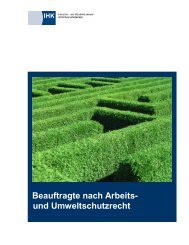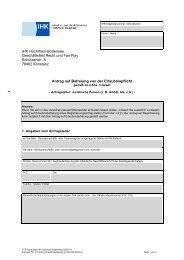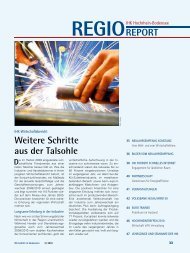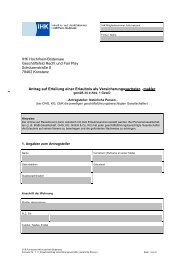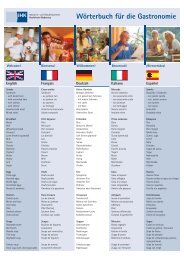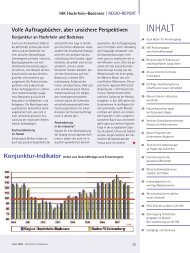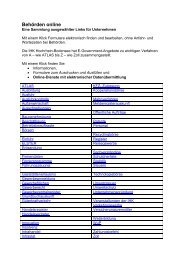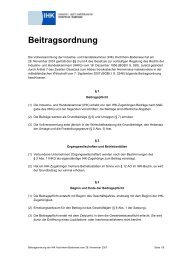REACH_One EINECs One SIEF_Final_clean
REACH_One EINECs One SIEF_Final_clean
REACH_One EINECs One SIEF_Final_clean
You also want an ePaper? Increase the reach of your titles
YUMPU automatically turns print PDFs into web optimized ePapers that Google loves.
substances for the purpose of <strong>REACH</strong>. More information can be found in the Commission<br />
document on <strong>REACH</strong> and waste and recovered substances 3 .<br />
3.4. What happens if EINECS entries have been incorrectly split into several<br />
substances<br />
There have been reports that companies within pre-<strong>SIEF</strong>s have used a very narrow<br />
interpretation of the substance definition to keep other companies and in particular SMEs out<br />
of the data sharing process, thereby making it very difficult and costly for these companies to<br />
prepare their own registration dossiers. This may violate <strong>REACH</strong> and Community legislation<br />
in various ways.<br />
On the one hand, this practice violates data sharing obligations with potentially serious<br />
consequences under <strong>REACH</strong>. In particular, it should be understood that, in line with Article<br />
30(3), refusal to provide data which involves testing on vertebrate animals on request results<br />
in inability to register substances and therefore in the extreme case the inability to continue<br />
manufacturing or importing the substance. Article 30(6) specifically requires the penalisation<br />
in accordance with Article 126 of the owner of the study who has refused to provide either<br />
proof of the cost or the study itself, i.e. the need for penalisation is emphasised in case of this<br />
particular breach.<br />
On the other hand, such a practice – whether the relevant substance involves testing on<br />
vertebrate animals or not – may, if it has the object or effect of excluding other companies<br />
from the relevant market as established in accordance with the Community legislation in the<br />
field of competition, constitute a violation of EU competition law and may therefore be<br />
prohibited and give rise to fines imposed under the EU competition rules.<br />
Companies facing doubts on whether they can or should split up EINECS entries should<br />
therefore take a cautious approach with respect to data sharing. On the one hand, substance<br />
identification criteria should be analysed very carefully and splitting up EINECS entries<br />
should be avoided where this is not justified. On the other hand, wherever it is concluded that<br />
splitting up EINECS entries is necessary, it may be scientifically appropriate to apply data<br />
sharing and read-across nevertheless to the entire group of substances, which will also help to<br />
avoid violation of data sharing obligations in case a mistake has been made, and it is found<br />
later on by authorities that the EINECS entry should not have been split.<br />
Companies facing situations where other companies manufacturing or importing the same<br />
substance refuse access to data with the argument that their substance is different are strongly<br />
recommended to formally request those data in line with Article 30(1) <strong>REACH</strong>. If the owner<br />
of the data refuses to provide the data, this has as a consequence that, provided it involves<br />
vertebrate animal testing, the data owner cannot register the substance and that, the company<br />
who is refused access to the data can proceed to register the substance without fulfilling the<br />
relevant information requirement. (The Agency may decide within 12 months of the date of<br />
such registration, if the owner of the information has not provided access to the requestor, that<br />
the test must be repeated by them.)<br />
3 http://ec.europa.eu/enterprise/sectors/chemicals/files/reach/waste_paper_ca_090403_en.pdf<br />
6



